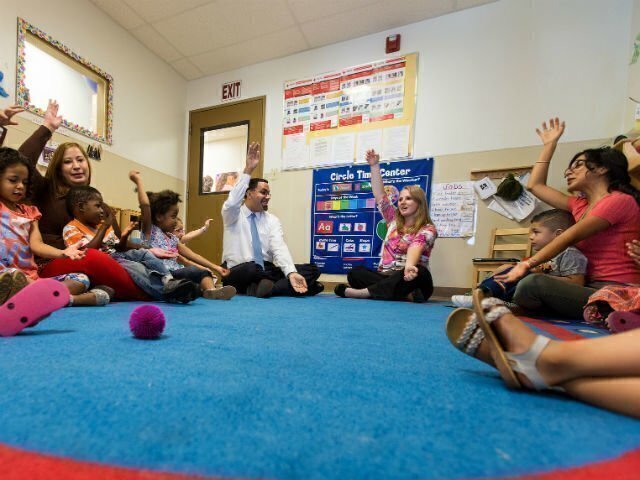
A high-profile legal challenge to teacher employment statutes in the state of California ended last week at the state’s highest court when a 4-3 majority declined to review the case.
The California Supreme Court didn’t explain its decision in Vergara v. California, but two justices wrote dissenting opinions, arguing that the case should have been taken up.
“Because the questions presented have obvious statewide importance, and because they involve a significant legal issue on which the Court of Appeal likely erred, this court should grant review,” wrote Justice Goodwin Liu. “There is considerable evidence in the record to support the trial court's conclusion that the hiring and retention of a substantial number of grossly ineffective teachers in California public schools have an appreciable impact on students' fundamental right to education.”
In Vergara, nine public school students sued California, claiming that so-called “teacher tenure” statutes were violations of the equal protection rights of minority and low-income students under the California Constitution, because those laws have resulted in the hiring and continued employment of too many “grossly ineffective teachers” in the California school system.
The trial court ruled in favor of the students in 2014, finding that “substantial evidence” showed the statutes imposed a real and appreciable impact on students’ fundamental right to equality of education. But earlier this year, a state appeals court overturned that decision, writing that the students “did not show that the statutes inevitably cause” the observed differences in educational quality.
Theodore Boutrous, an attorney for the students, told The Los Angeles Times that the reasoning of the dissenting justices provides “a launching pad” for further challenges. “If you talk to any rational person on the street about the issues,” he added, “they’re going to agree with us.”
Now, Boutrous and Students Matter, the advocacy group behind the Vergara challenge, are testing that confidence in a new venue: Connecticut.
In a federal lawsuit filed last week, several public school students and their families are challenging Connecticut state laws that govern the magnet and charter school systems, as well as programs allowing inner-city students to attend wealthier schools. These so-called “anti-opportunity” laws, they say, result in lower-quality education for poor and minority students, and thus are violations of the Due Process and Equal Protection Clauses of the 14th Amendment.
Courts have never recognized a right to education in the U.S. Constitution—not even the Supreme Court in its celebrated ruling in Brown v. Board of Education—yet the Connecticut plaintiffs argue that the 14th Amendment protects a “fundamental right to a minimally adequate education.” Such a finding would be a landmark shift in constitutional law.
Indeed, Indiana law professor Gerard Magliocca suggests that the dissenting votes in Vergara portend “the future of liberal constitutional thought”:
[L]iberals in the academy and on the courts are probably going to start taking more seriously the idea that the Constitution confers positive rights or requires a more compelling state justification for policies that lead to unequal outcomes in the distribution of those benefits by legislation. When I say the future, I mean a decade from now. Merrick Garland and Steven Breyer are the archetypal legal process liberals who will not be terribly interested in such claims, but the next generation will probably have greater faith in the judicial capacity to address these problems.
“Whether this is a good idea is another matter,” he added. “We’ll cross the bridge when it comes.”
Nicandro Iannacci is a web content strategist at the National Constitution Center.
\







